Retired Otto the Orange Gets TLC
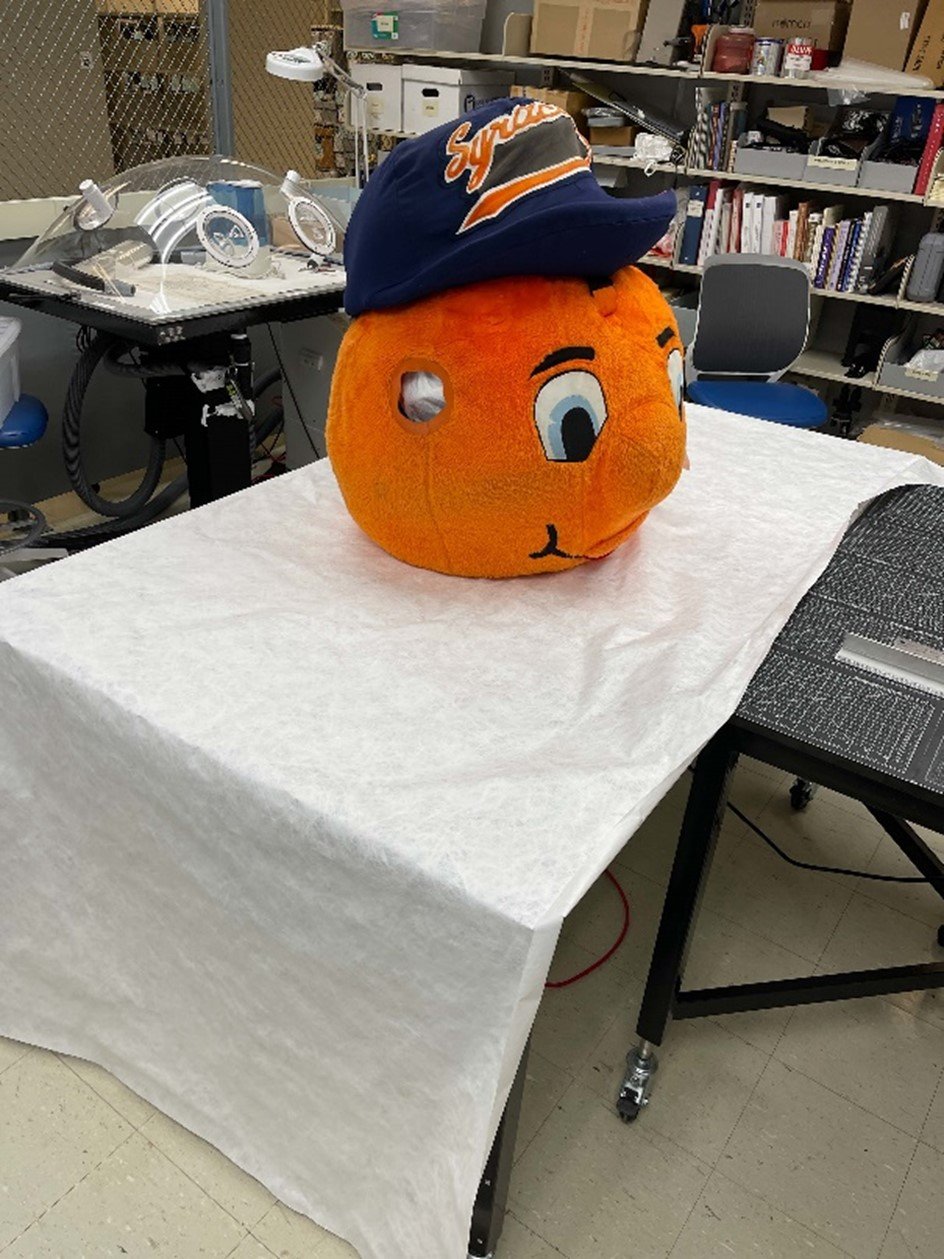
by Anastasia Sopchak, Conservation Lab Assistant
The University Archives at the Special Collections Research Center (SCRC) has a wide range of objects that captures the history of the University since its founding in the Syracuse University Memorabilia Collection, including three Otto the Orange mascot costumes from the early 2000s. The costumes were being stored flat in boxes, but this was causing the fabric to wrinkle and deform, so they came to the Conservation Lab to be rescued, re-inflated and re-packed.
As you can see below, the Otto mascot costumes were a bit dusty and flat, and too large to house in a regular box.
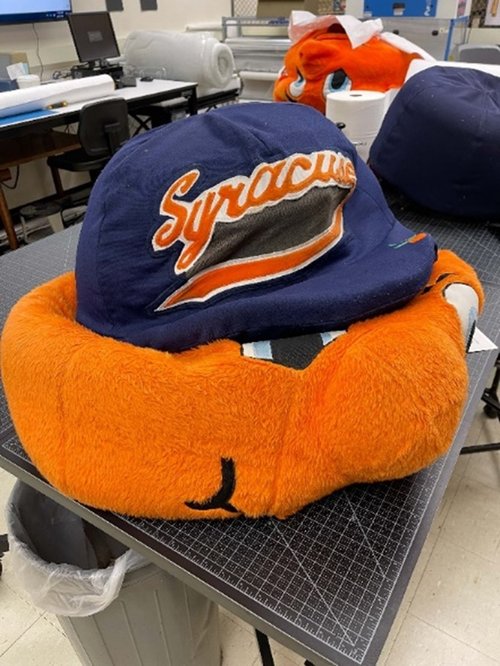
Deflated Otto Mascot Costume
First, we started by giving the mascots a thorough vacuuming, which helped to reduce the dust layer. However, the costumes were used for performances at countless games and accumulated many years’ worth of sweat and now they have a unique (and permanent) scent.
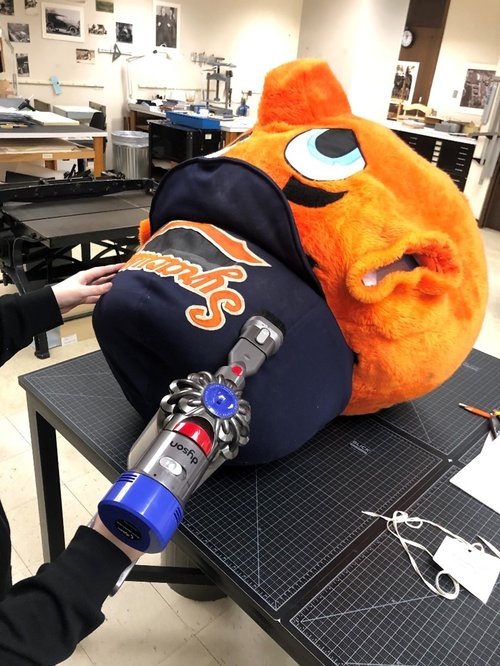
Cleaning the Otto Mascot Costume
Next, we used Tyvek (high-density polyethylene fiber fabric) sheets to line the inside of the costumes and used polyester fiber batting to fill the space. We tied the stuffed interior Tyvek bags shut but made sure they could be removed if needed.
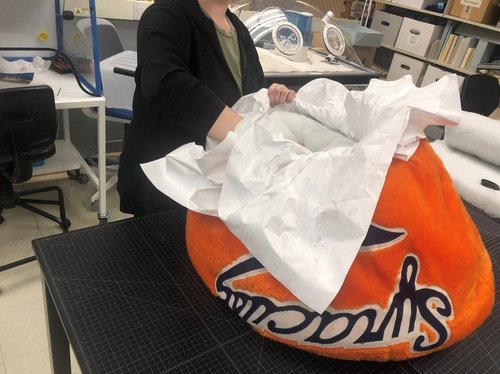
Filling the Otto Mascot Costume
Finally, we wrapped the now-stuffed Otto heads with large Tyvek sheets and put them inside large Tyvek bags for storage. Now, the Otto mascot costumes will be protected from dust and ready to display when needed, and they won’t become damaged from prolonged deflation.
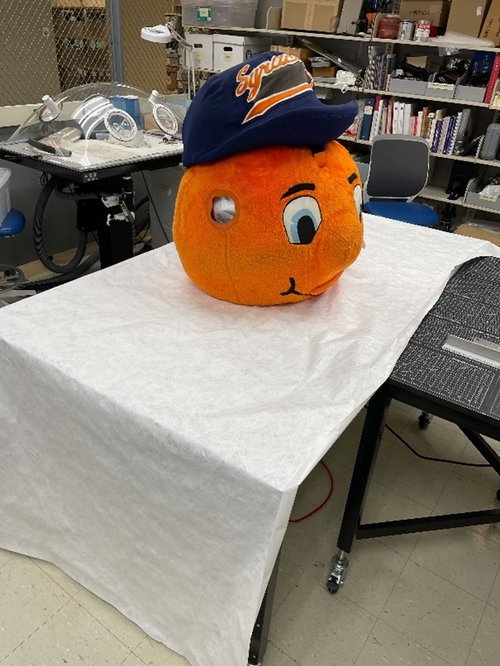
Wrapping the Otto Mascot Costume for storage
With these conservation treatments in place, this important piece of the history of Otto the Orange and SU mascots and school traditions is preserved for future generations.
